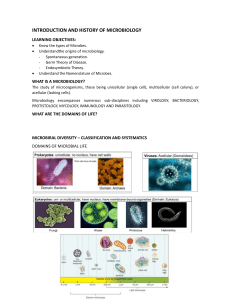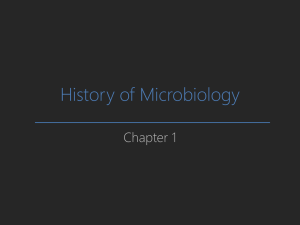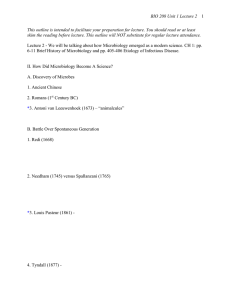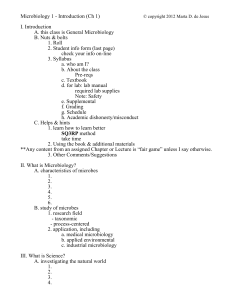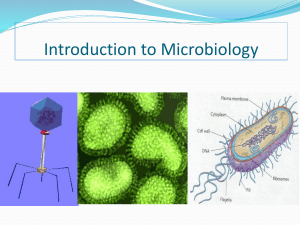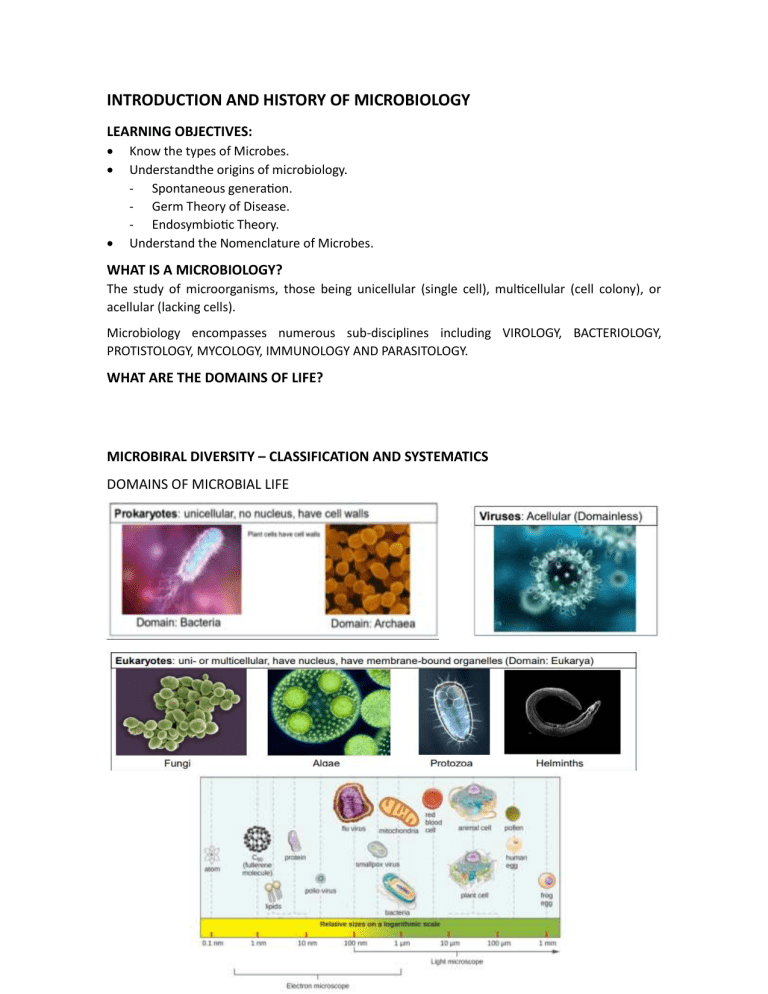
INTRODUCTION AND HISTORY OF MICROBIOLOGY LEARNING OBJECTIVES: Know the types of Microbes. Understandthe origins of microbiology. - Spontaneous generation. - Germ Theory of Disease. - Endosymbiotic Theory. Understand the Nomenclature of Microbes. WHAT IS A MICROBIOLOGY? The study of microorganisms, those being unicellular (single cell), multicellular (cell colony), or acellular (lacking cells). Microbiology encompasses numerous sub-disciplines including VIROLOGY, BACTERIOLOGY, PROTISTOLOGY, MYCOLOGY, IMMUNOLOGY AND PARASITOLOGY. WHAT ARE THE DOMAINS OF LIFE? MICROBIRAL DIVERSITY – CLASSIFICATION AND SYSTEMATICS DOMAINS OF MICROBIAL LIFE SPONTANEOUS GENERATION Notion that life arises from non-living matter. Fleas arose from dust. Frogs arose from flooding. Mice appear in grain storage areas. Maggots arise from rotting meat. Spontaneous generation was disproved. FRANCESCO REDI’S EXPERIMENT BOILING BROTH Needham’s Experiment Spallanzani’s Experiment Louis Pasteur’s Experiment ANTONY VAN LEEWENHOEK’S “WEE ANIMALCULE” He was a draper (made clothes). Built his own microscope as a hobby. Saw in water from rain or poud. CELL THEORY Robert Hooke → Coined the term “cell” when looking at cork. Robert Hooke → Coined the term “cell” when looking at cork. Matthais Schleiden → Observed cells in plant tissue. Theodor Schwann → Observed cells in animal tissues. CELL THEORY: CELLS DIVIDE TO MAKE NEW CELLS Rudolf Virchow Robert Remark IDEA THAT MICROBES CAUSE DISEASE Thucydides Advocated for evidencebased analysis of cause and effect. Plague survivors don’t get sick again - inmunity Marcus Terentius Varro First to propose things we can’t see cause disease GERM THEORY OF DISEASE Ignaz Semmelweis Joseph Lister TAXONOMY Robert Koch NOMENCLATURE • Genus species Ex) Escherichia coli • Abbreviation = G. species E. coli • Genus spp. - When talking about multiple species in a genus Genus sp. – when species is unknown or not needed •
